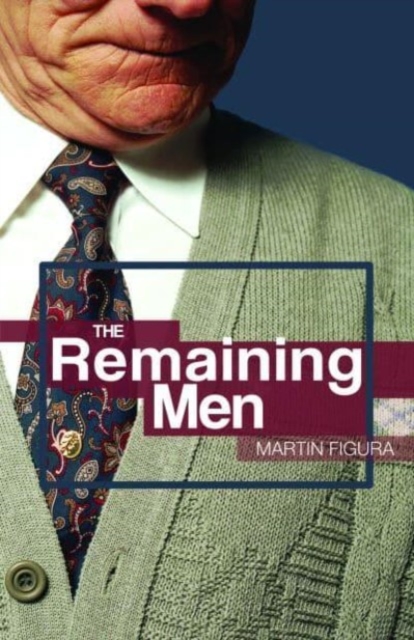REVIEW: MARTIN FIGURA’S ‘THE REMAINING MEN’
By Stella Backhouse

I was born on the day John Profumo asked Christine Keeler for her phone number; in the very hour, quite possibly, that she was driving back to London with Yevgeny Ivanov. Two years later, the revelation of her scandalous liaisons would ignite the 1960s – but of course no one knew that, then. The opening poem of Martin Figura’s 2024 collection The Remaining Men reminded me of it though, with its reflection that the poet’s own birth in 1956 took place “in the same hospital as John Lennon/ although no one knows this yet”. As readers of my vintage will apprehend, this is poetry that can be written only from the vantage-point of older age, with its gift of perspective on the interplay of individual lives against unspooling history. The collection covers a number of different themes, including Figura’s fractured childhood, his army comrades, his life in notable politicians and poems written as poet-in-residence in the post-industrial Durham coalfield and at NHS Salisbury during Covid. What brings them together is Figura’s archaeological approach to the lives of his subjects, delicately stripping back layers of history to excavate how politics and economics use real people.
The idea of the surface and what lies beneath it is important. This is especially so in the poems about County Durham, which also work as a lament for lost masculinities. In ‘Seams’ the subterranean strata of the coal measures weave among the detritus of mining community life – “Gala footprints and picnic crumbs, Viking artefacts,/flattened brass trumpets, swamped forests turned peat” – while the surface settles back into uncertain ground, a Larkin-esque “pocked mask momentarily caught in light/somewhere between industry and regeneration/workings and roots left trailing”. There is a sense of identity being slowly digested downwards, leaving behind only traces like the mud-bound pit-boot pictured next to the poem, harder to read for every passing generation. ‘The Remaining Men’ continues this theme of time’s progressive action on time past. After the pit closures, unwanted men hang about on the surface, transitioning through various phases including monuments, novelty porch lights and eyesores until “When children asked what they were, not everyone could remember/and of those that did, few were believed”.
Post-traumatic stress is also a theme. ‘The Boy Who Replaced His Mother:’ lists the lonely stunts and games Figura resorted to in the hope they would ease his pain after his mother’s death’; ‘Liar’ is about the genesis of the imposter syndrome that set in at about the same time. The poems about NHS Salisbury and about former soldiers capture both ends of the trauma spectrum. You can’t help wondering if the NHS poems are about the trauma of the future. In what sounds like a verbatim quote, an End of Life Care nurse says in ‘End of Life’ “We dealt with acute grief after acute grief, you finished one phone call and you were straight into another acute grief situation”. On the other hand, the army poems meet the men years later, by which time Civvy Street seems more like a war zone than Afghanistan: “Civvy Street is another country,/is a complex and dynamic environment, where/the enemy is covert, may be wearing your own dark coat”. As someone who is in some ways still living with World War One through my grandfather’s trauma-induced alcoholism that worked its way into my mother in the form of permanent anger, I was also greatly affected by the quietly haunting ending of the World War One poem ‘Sacrifice’: “I am wire tangled into the approximate shape/of a man in a fireside chair/waiting for the mud on his boots to dry”.
On the Somme, no one knew the battle would endure even to the soldiers’ grandchildren. I only know that now. I also know, after researching for this review, that there were moments in the early 1960s when Martin Figura and I might have passed in the street. It was a small town and while I didn’t immediately recognise the street name, I looked it up on Google Maps and knew I’d passed the turning hundreds of times. My parents must have heard about Martin’s mother’s death, probably talked about it. They never could have thought that in the fulness of time, I’d write appreciative words about his poetry.
The Remaining Men is available online direct from Martin’s website, as well as from publisher Cinnamon Press and other bookshops.
